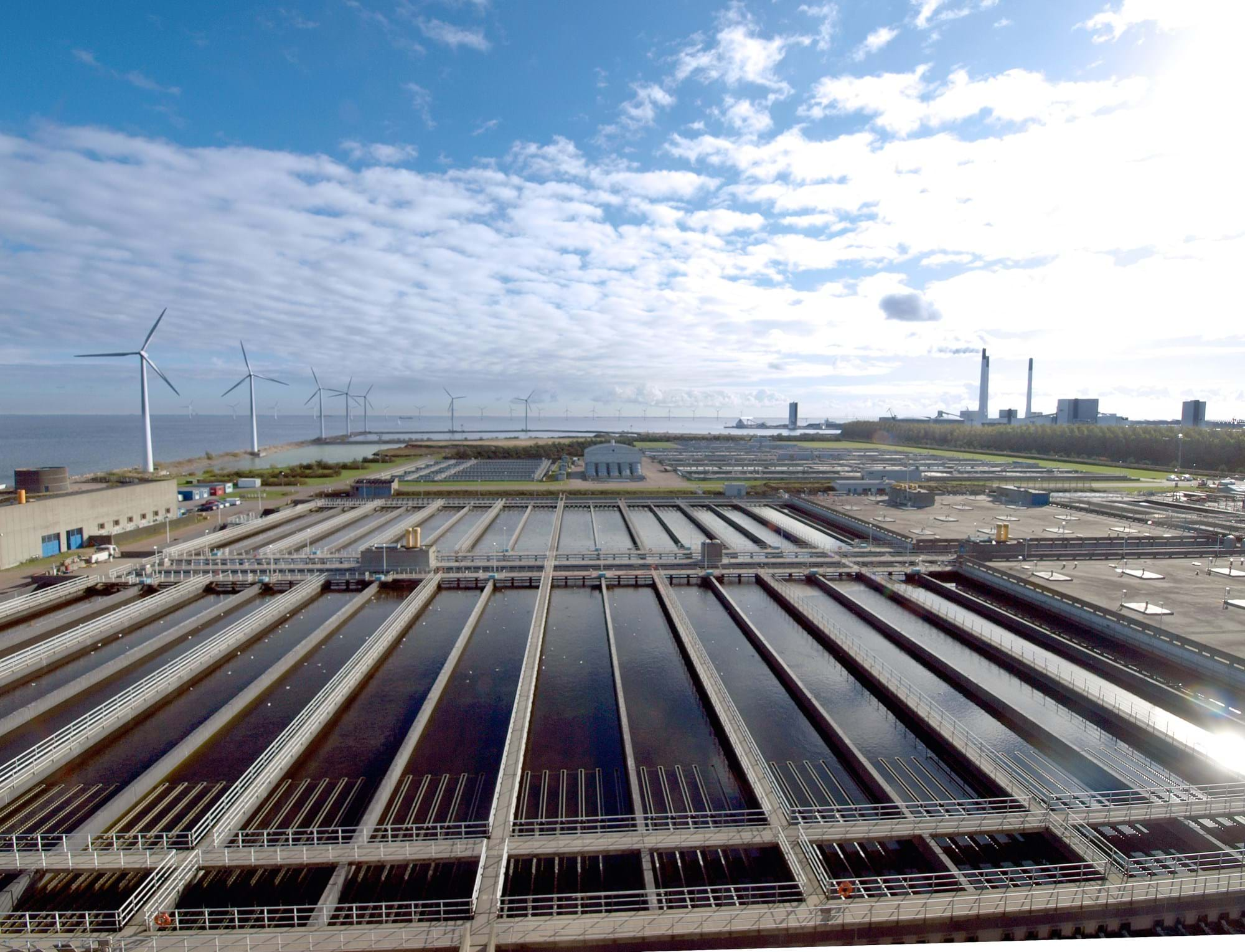

The aggressive wastewater in treatment plants gradually causes traditional building materials to corrode - this problem is easily solved by using fibreglass composite instead, which is corrosion-free
Fiberline fibreglass profiles are particularly suitable for use in wastewater and chemical plants, as the material is corrosion-resistant and therefore resistant to wind, rain, chemicals and, not least, the water that flows through the plants every day. This also means that the fibreglass doesn't rust or rot and only requires minimum maintenance. This is also why our fibreglass profiles have an unrivalled durability and a long functional life, even in demanding conditions, and why they are an economic advantage in the long run. Great demands are placed on the materials that are used to cover the large aeration tanks at wastewater treatment plants. The air is full of hydrogen sulphide and other aggressive gases, and traditional materials therefore succumb and corrode, causing major safety risks.
Fiberline's planks and gratings, which have a non-slip surface, are therefore used in a number of wastewater and chemical plants in Europe for walkways, bridges, roofs and as lids on even very large structures, helping to increase staff safety. The fibreglass profiles can also be used to cover the wastewater tanks to reduce bad odours.
Our products are CE certified according to the EN13706 1-3 standard. This certification is your guarantee of consistently high quality every time you buy from us and use our products. Read more
Fiberglass enables lightweight and robust constructions, making installation faster. Although the material is comparable to steel, the specific weight of Fiberglass is only a quarter of steel. Read more
Fiberglass is an exceptionally strong material, rivaling steel, aluminum, and wood. Composite profiles offer similar weight to aluminum, while being just 20% the weight of concrete and 40% of steel, making them highly efficient. Read more
Composite materials are generally very durable, with only a few exceptions. They resist a variety of aggressive liquids and environments, resulting in long lifespan and minimal need for maintenance. Read more
Fiberglass is UV-resistant and can withstand temperatures between -40 and +80 degrees Celsius without deterioration of its properties. Additionally, it tolerates seawater and other atmospheric influences. Read more
Fiberglass profiles are electrically insulating. They are suitable for use in connection with all electrical constructions, such as along railway tracks, power plant installations, etc., as they are suitable for both low and medium voltage. Read more
The processing of fiberglass profiles is significantly easier than for metals such as steel, and just as efficient as for wood. This makes it easy to handle solutions with our profiles on site. Read more
Fiberline's fiberglass profiles have a significantly higher thermal insulating capacity compared to steel and aluminum. Read more
Fiberline's products are manufactured energy-efficiently through pultrusion. The low weight relative to strength and long lifespan make them a cost- and energy-efficient alternative. Read more